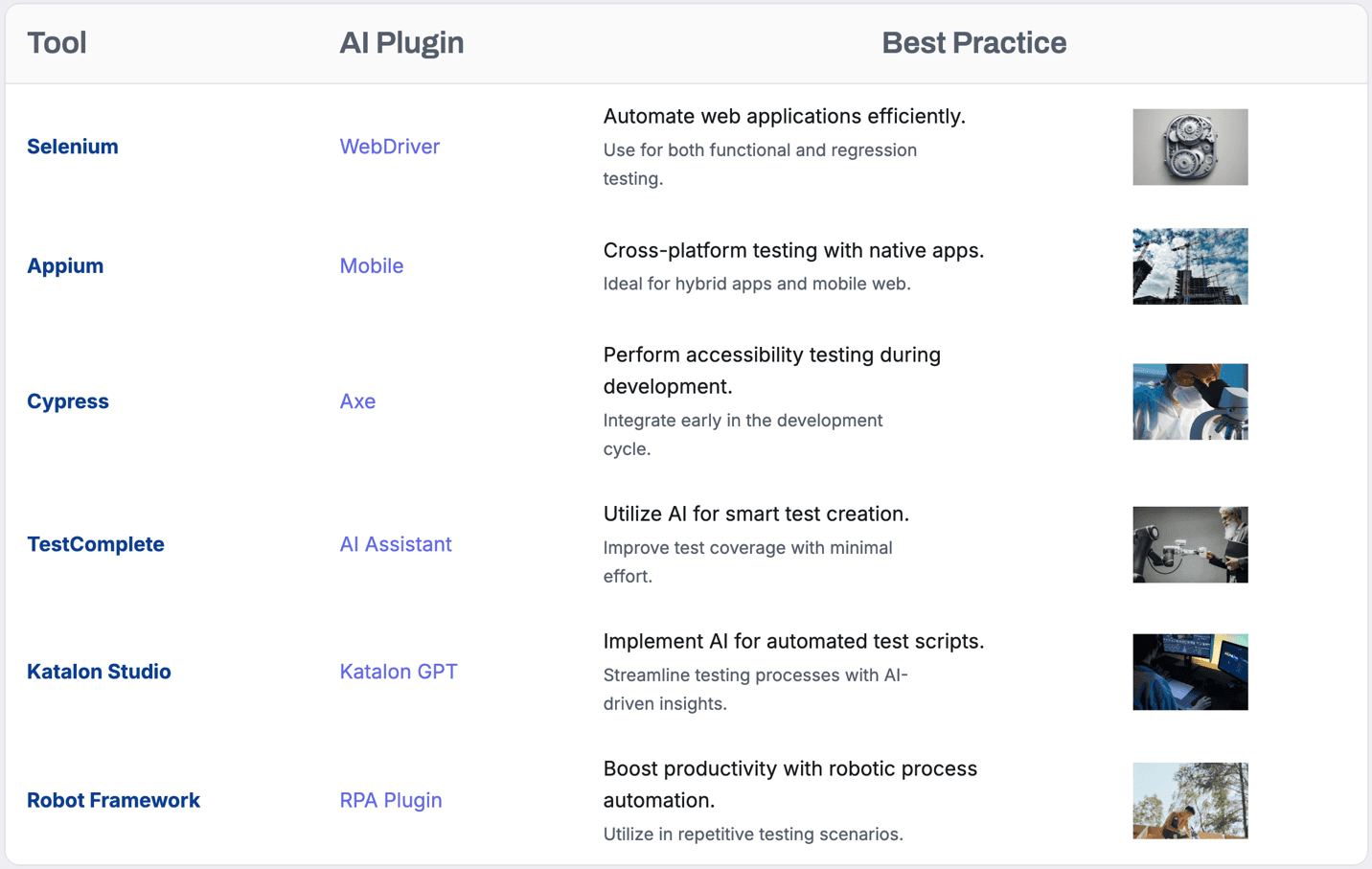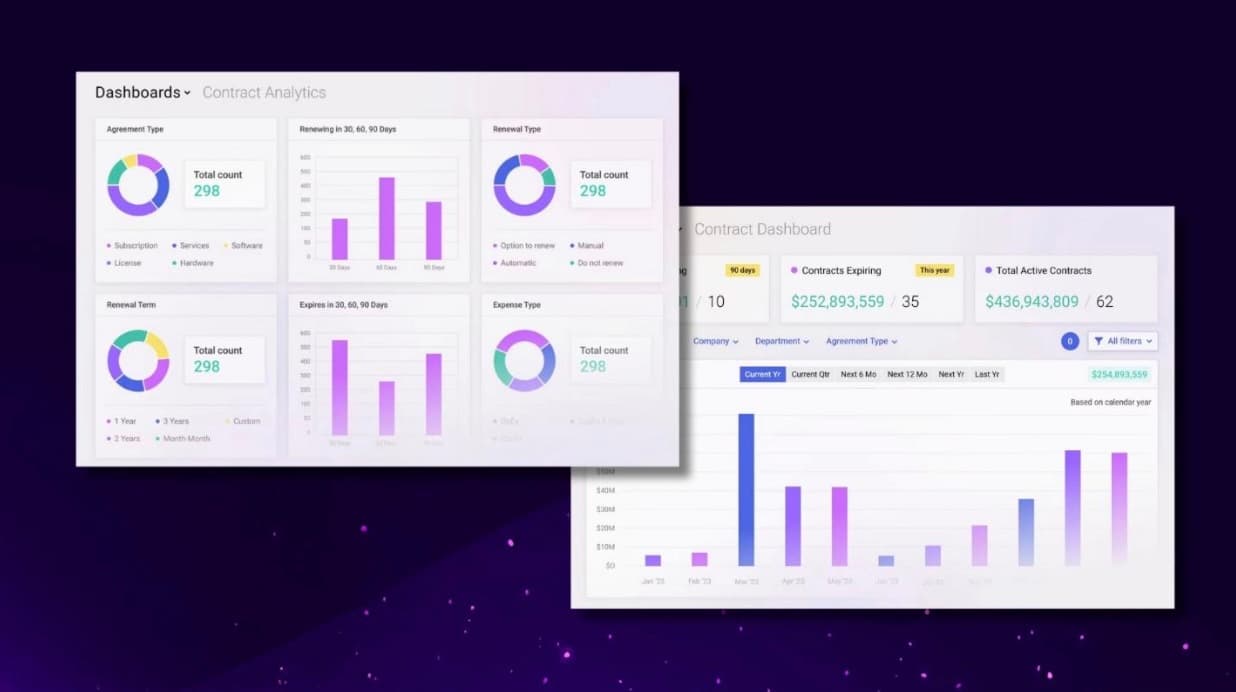AI-Powered Mobile Automation: Unleashing Its Potential in Test Framework
The rapid evolution of mobile applications demands robust testing frameworks to ensure quality, performance, and user satisfaction. Mobile automation testing has become a cornerstone of modern development pipelines, and integrating Artificial Intelligence (AI) into these frameworks is revolutionizing the process. By leveraging AI, teams can enhance test creation, execution, and analysis, leading to faster delivery and higher reliability. This article explores the role of AI in mobile automation test frameworks, focusing on mobile automation tools with AI plugins and the application of AI in failure analysis, enriched with expert insights and resources.
Mobile Automation Tools and AI Plugins
Mobile automation testing involves tools that simulate user interactions on mobile devices to validate app functionality, performance, and compatibility. Popular tools like Appium, Selenium, and TestComplete have long been staples in this space. AI-powered enhancements are taking these frameworks to new heights by introducing intelligent test generation, self-healing scripts, and predictive analytics.
Appium with AI Plugins
Appium, an open-source tool for automating mobile apps across iOS and Android, is highly extensible. AI plugins like Test.ai integrate with Appium to enable intelligent test creation. Test.ai uses machine learning to analyze app interfaces dynamically, generating test cases without predefined scripts. It identifies UI elements, predicts user flows, and adapts to changes in the app’s layout, reducing maintenance efforts. For example, if a button’s ID changes, Test.ai’s AI can locate it based on visual or contextual cues, ensuring robust tests. Learn more about Test.ai’s integration with Appium at Test.ai.
Selenium with AI Enhancements
While Selenium is traditionally used for web automation, its mobile capabilities (via Appium’s WebDriver protocol) are enhanced by AI tools like Mabl. Mabl provides AI-driven test automation, including visual testing and anomaly detection. Its machine learning models analyze test runs to identify patterns, flagging issues like UI regressions or performance bottlenecks. Mabl’s self-healing tests adjust to minor UI changes, minimizing manual script updates. “Mabl allows our team to focus on improving our product and user experience. The fast, consistent execution has been instrumental in showing the value of testing,” says a Mabl user.
TestComplete with Smart Features
TestComplete, a commercial automation tool, incorporates AI-driven features like intelligent object recognition and test optimization. Its AI algorithms map objects accurately, even when layouts shift, and suggest optimal test paths to reduce execution time. “TestComplete’s object recognition engine, powered by AI, ensures reliable test execution across diverse platforms,” notes a SmartBear representative. For mobile apps, this is critical given device fragmentation and frequent OS updates. Check out TestComplete’s capabilities at SmartBear.
Emerging AI-First Tools
Tools like Functionize and Perfecto’s AI-driven testing suite are built with AI at their core. Functionize uses natural language processing (NLP) to create tests from plain English requirements, while Perfecto’s AI prioritizes high-risk areas. “Functionize allows developers to execute end-to-end tests that are self-healing, promoting faster development,” says a Functionize spokesperson. Both tools support mobile testing across real and virtual devices, optimizing coverage and reducing flakiness. Visit Functionize and Perfecto for more details.
These AI-enhanced tools streamline test creation and maintenance, making them ideal for dynamic mobile environments where apps evolve rapidly.
AI in Failure Analysis
Diagnosing and resolving test failures is a significant challenge in mobile automation testing. Failures can stem from code bugs, environmental issues, device-specific quirks, or flaky tests. AI transforms failure analysis by providing deeper insights, faster root-cause identification, and proactive prevention strategies.
Root Cause Analysis
AI-powered tools, such as those in Perfecto or Testim, use machine learning to classify and prioritize test failures. By analyzing logs, screenshots, and system metrics, they categorize failures into types (e.g., application crash, network timeout, or assertion error). For instance, if a test fails due to a network issue on an Android device, the AI correlates the failure with device logs and historical data, pinpointing the cause. “AI can detect anomalies in test execution by analyzing patterns in test results and identifying deviations from the norm,” explains a CADLE expert. This accelerates debugging. Learn more at Testim.
Pattern Recognition and Flakiness Detection
Flaky tests—those that pass or fail inconsistently—are a common pain point. AI tools like Mabl and Test.ai employ pattern recognition to identify flaky tests by analyzing historical test runs. They detect anomalies, such as tests failing only on specific devices or under low-memory conditions. “Mabl’s supervised machine learning models learn your application timing to dynamically adjust tests for faster and more reliable execution,” states a Mabl engineer. This improves test suite reliability.
Predictive Analytics for Failure Prevention
AI predicts potential failures by analyzing code changes, test coverage, and historical data. Tools like Functionize highlight high-risk areas, such as new features or frequently failing modules. “AI can predict areas of the mobile application that are likely to fail, allowing testers to focus on high-risk areas,” notes a LambdaTest expert. For example, if a new UI component is introduced, AI might predict compatibility issues on older iOS devices and recommend targeted tests.
Visual Testing and Validation
Mobile apps rely heavily on visual appeal, making visual testing critical. AI-driven tools like Applitools use computer vision to compare screenshots across test runs, detecting UI regressions (e.g., misaligned buttons or incorrect fonts). When a visual test fails, Applitools’ AI groups similar failures and suggests root causes. “Applitools leverages advanced AI and machine learning algorithms to provide superior accuracy and intelligent visual validation,” says an Applitools representative. This ensures consistent user experiences across devices.
Best Practices for AI Integration
To maximize AI’s benefits in mobile automation test frameworks, consider these best practices:
Start Small: Begin with AI plugins for tools like Appium or Selenium to evaluate impact without overhauling your framework.
Leverage Real Devices: Use cloud platforms like Sauce Labs or BrowserStack, which integrate AI tools and provide diverse real devices. See BrowserStack.
Train AI Models: Feed AI tools with historical test data to improve accuracy in test generation and failure analysis.
Monitor AI Outputs: Regularly review AI-generated tests and failure reports to ensure alignment with app requirements.
Combine AI with Human Oversight: AI excels at pattern recognition, but human testers should validate critical test cases and interpret complex failures.
Conclusion
AI is reshaping mobile automation testing by making frameworks smarter, faster, and more resilient. Tools like Appium, Selenium, and TestComplete, enhanced with AI plugins such as Test.ai, Mabl, and Applitools, empower teams to create adaptive tests with minimal effort. In failure analysis, AI’s ability to pinpoint root causes, detect flakiness, and predict issues is invaluable in the complex mobile ecosystem. As an expert from Applitools notes, “AI can now surface root causes and risk areas automatically—so your team spends less time debugging and more time building.” By integrating AI strategically, organizations can achieve higher test coverage, reduce debugging time, and deliver high-quality mobile apps that meet user expectations.





